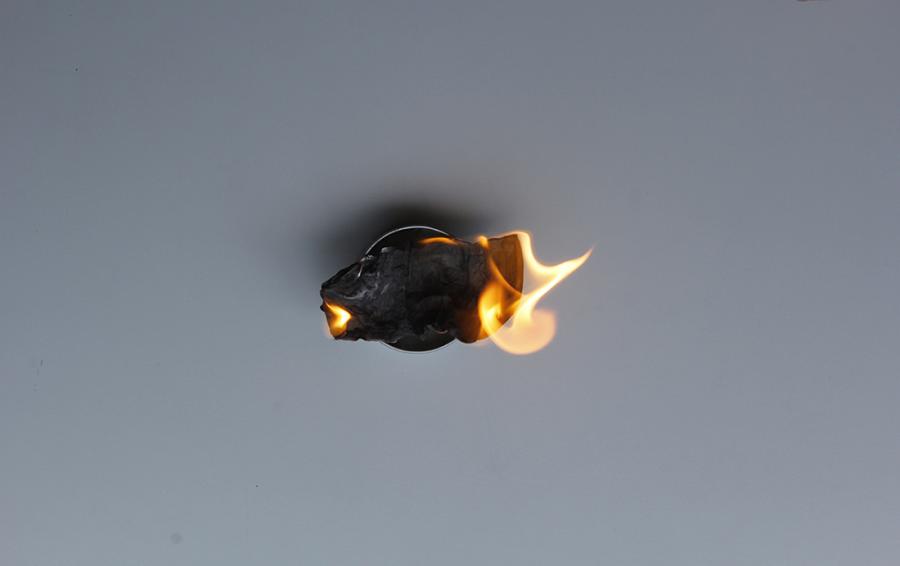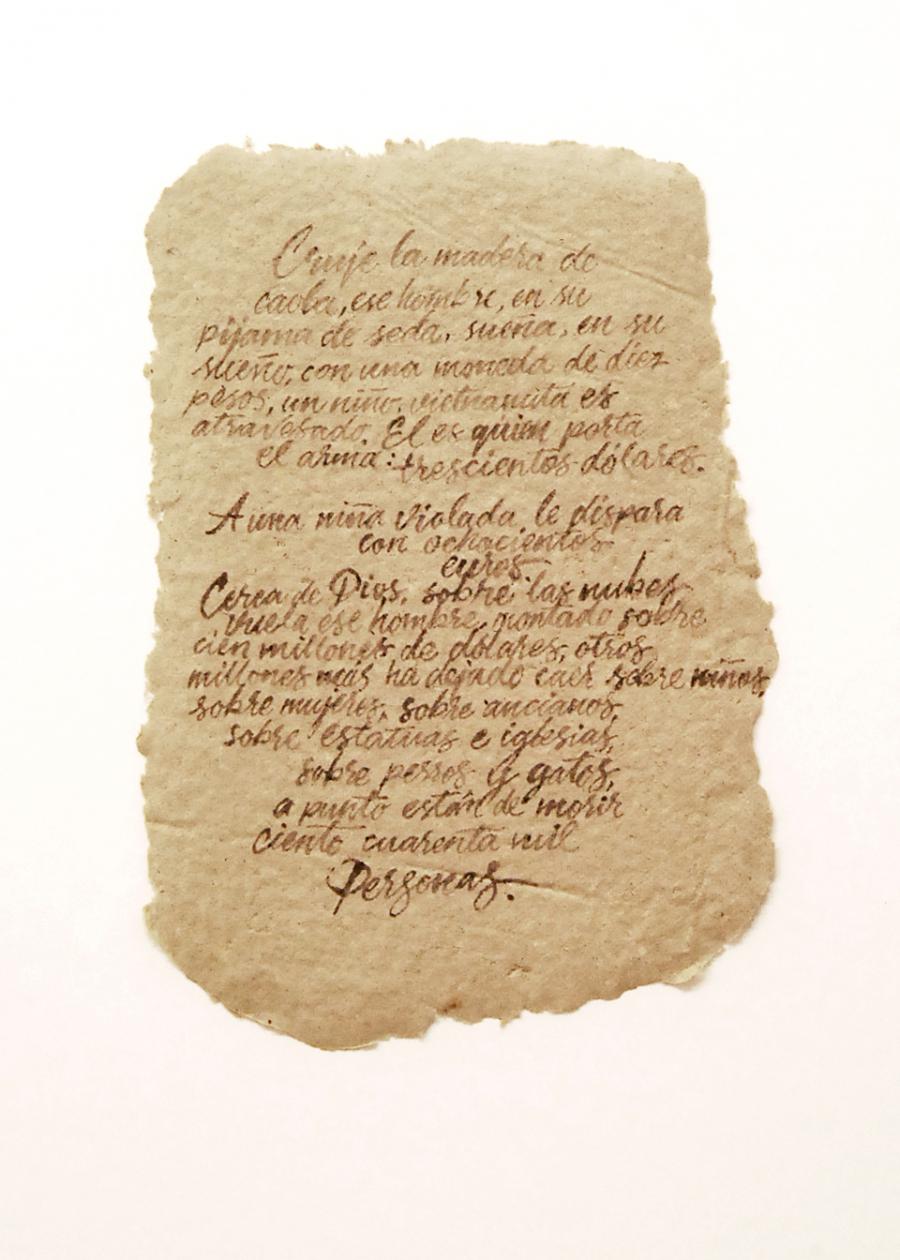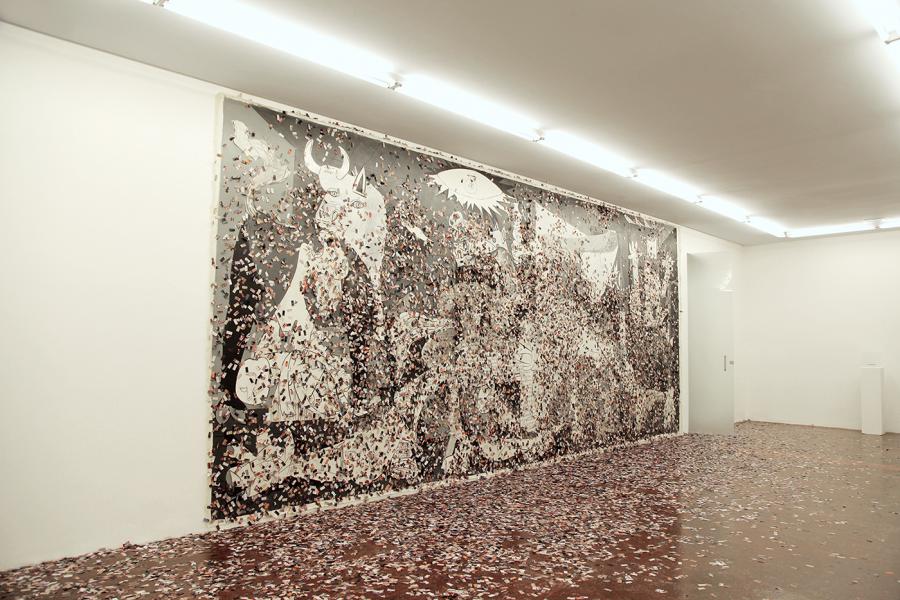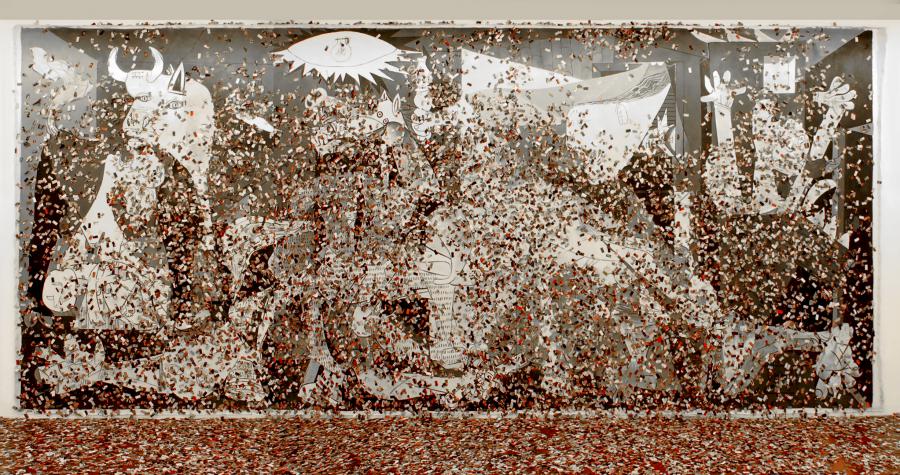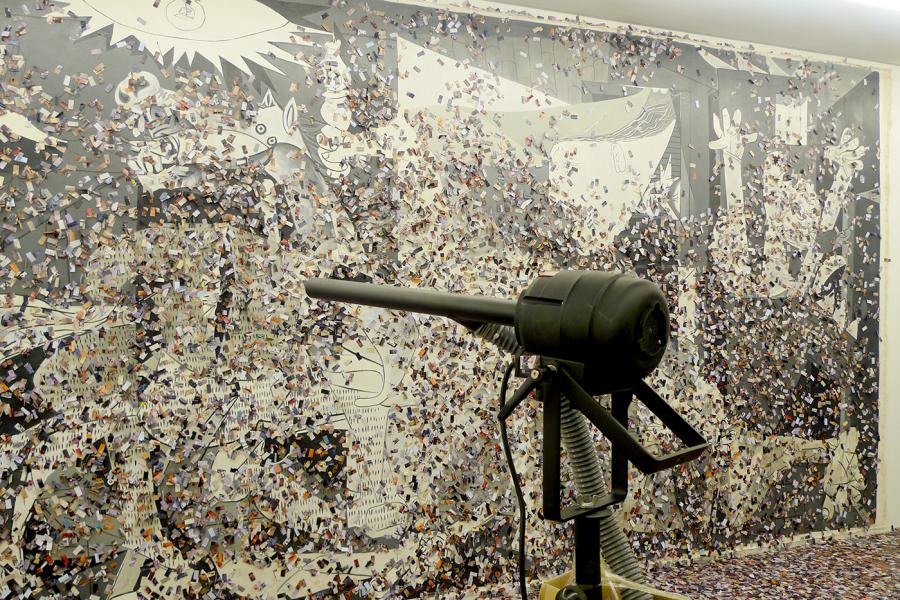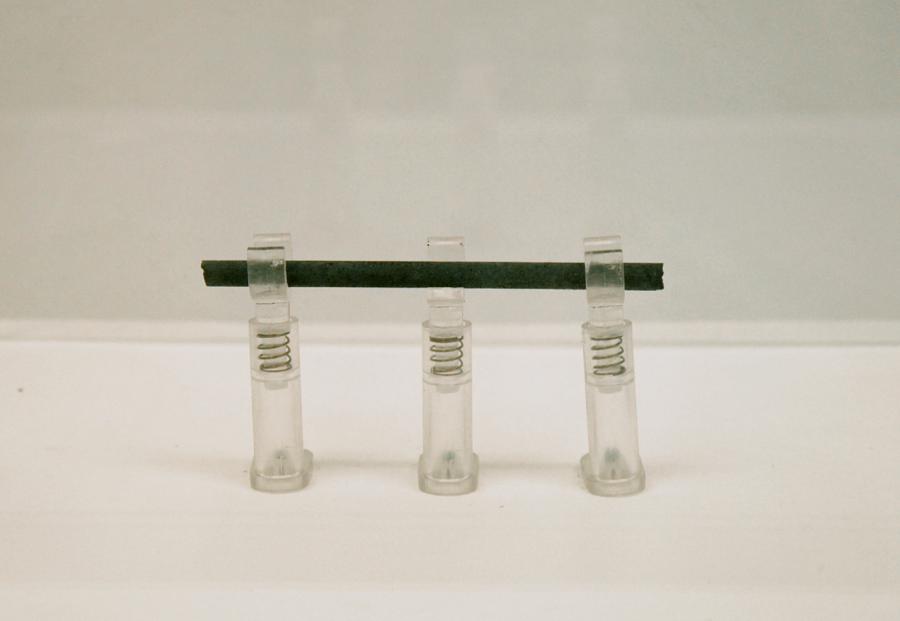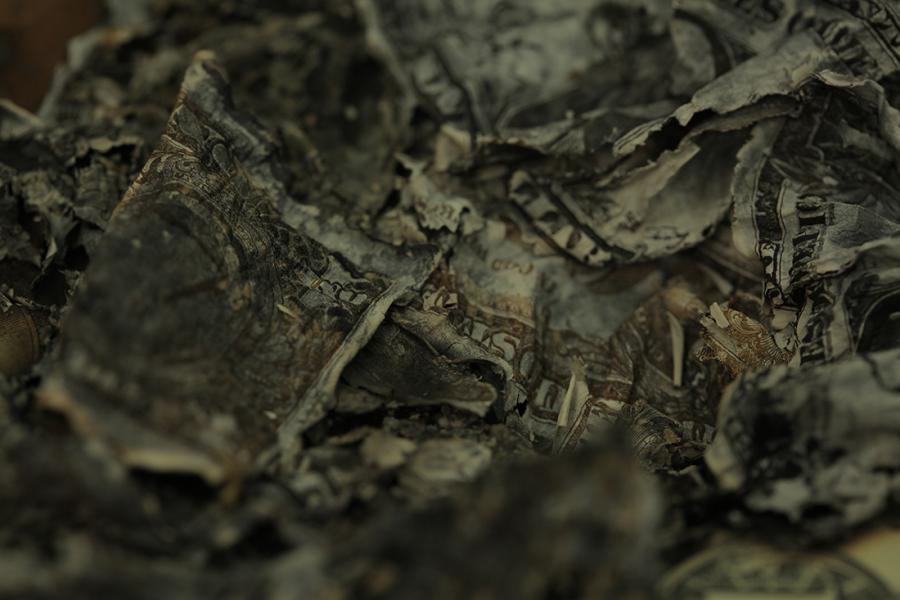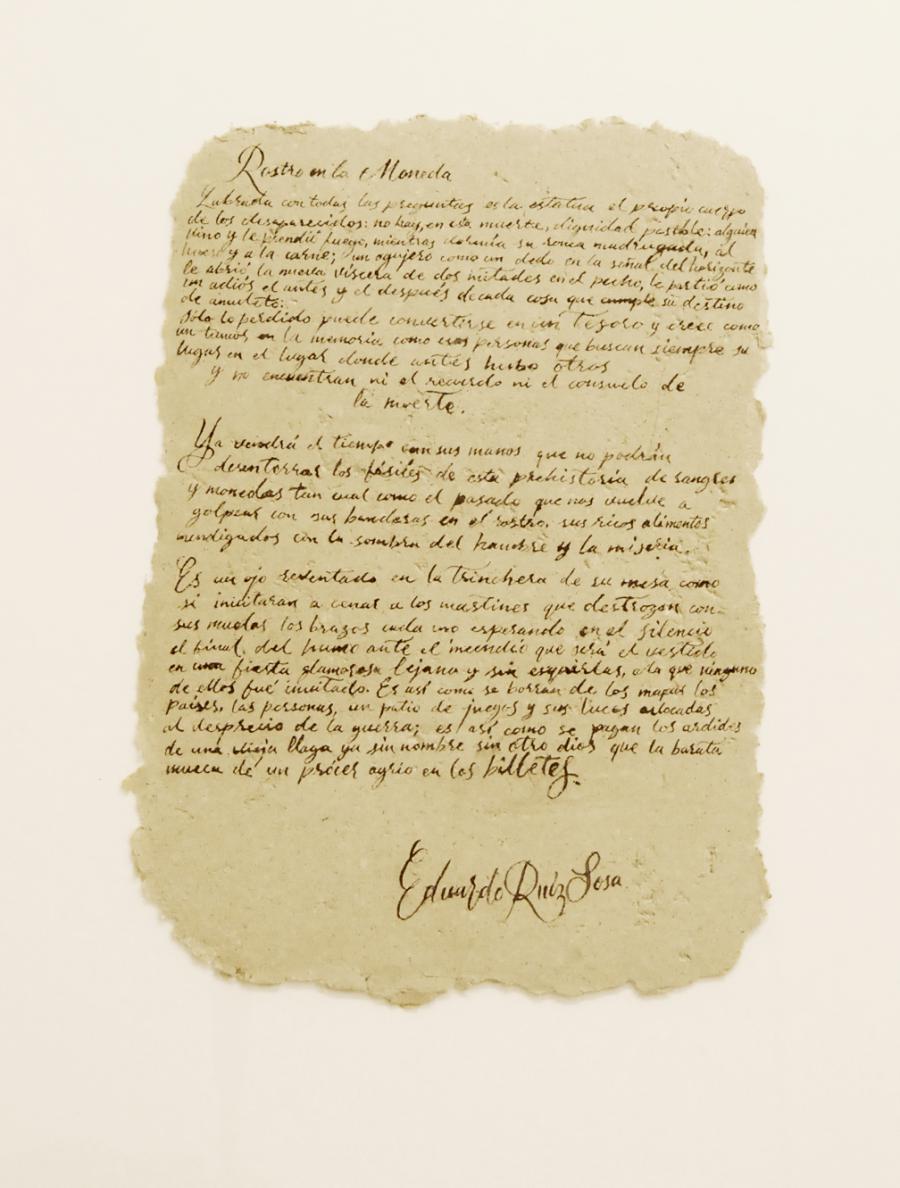Fritzia Irizar. La historia del humo
Opening Thursday 2 February at 7 pmAt early XIX century a bloody war of independence explodes in México and took the lives of thousands of people. One hundred years later, a new war deranges the country under a different premise: Mexican revolution starts, along with so many other similar revolutions, the violent XX century and the devastation left in its path. Almost a century later, with horrifying mathematical symmetry, it begins a new war: the combat against drug cartels and organized crime, a war that left the dismal amount of over hundred thousand mortal victims along the nation.
On April 26, 1937, a Blitz was performed (later it will be considered as a clear example of a war crime) by the German and Italian armies as a way of support to the uprising side which fought against the government of the Spanish Second Republic.Eighty years after that terrible event in Guernica, Russia attacks the Aleppo, Syria, area with aerial bombardments as a new offensive against the opponents of the regime. It seems to be that history tries to repeat itself or rather that we endeavor to repeat it.
Fritzia Irízar’s work approaches war as an act of barbarism that we keep repeating century after century, as if we fail to understand the mistakes of our past in order not to commit them again, that is, we continue to make the same decisions guided by selfish, perverse and ambitious interests; the clearest and most influential of all of them: money.
This is perhaps a consideration that was not taken into account in The Wealth of Nations, a beautiful economic utopia that functions as the basis for the neoliberal capitalist system, which gives full freedom to the market, in the hope that for a reason (an invisible hand) the economic system thrives. Evidently, the current facts shout that this is not the case.
Fritzia’s discourse tells us about a market that has been sustained by that decaying economic system that arises from Adam Smith’s analysis of the origin and causes of prosperity, a market that has enriched a few at the expense of the life of millions and has responded to the political interests of the great world powers: the war market. Her work becomes a protest against all those hidden purposes that fuel warlike conflicts, and seeks a last claim through art, a pure art that has not yet been corrupted by mercantile or economic purposes, an exploration and analysis, through language, of the critical state in which society finds itself: such pure art is poetry.
Leonardo González
Fritzia Irizar, Culiacán, Mexico, 1977, she has exhibited in institutions like Sala Siqueiros of Ciudad de Mexico, Museo de Arte Zapopán, or Headlands Center for the Arts in San Francisco. She has participated in the biennial of Mercosur at PortoAlegre, the biennial of FEMSA and group exhibitions at CA2M, CIFO Fundacion Fontanals Cisneros, Miami, Fundación Giorgio Cini, Venezia, Museo Rufino Tamayo or Fundacion Banco Santander among others.


